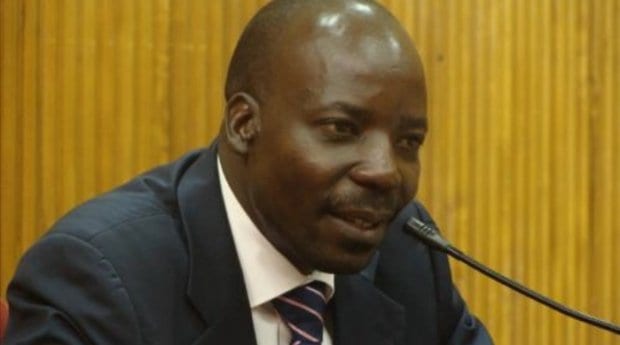As LGBT Ugandans reportedly prepare to stage a Pride event, the country’s attorney general has filed notice that he will appeal the Aug 1 court ruling that struck down the Anti-Homosexuality Act.
Peter Nyombi has not yet announced on what grounds the government will appeal the ruling.
Uganda’s Constitutional Court found the anti-gay law “null and void” in its Aug 1 ruling that found parliamentary speaker Rebecca Kadaga abdicated her duty to ensure there was quorum when legislators voted on the bill.
Lawyer Nicholas Opiyo, who co-represents nine petitioners who challenged the law in March, thinks the government’s appeal will be confined to the issue of quorum.
“My sense is that this appeal has been preferred by the government to appease the big majority of people in Uganda who are deeply upset by the decision of the Constitutional Court,” Opiyo suggests.
It may take a long time for the appeal to be heard — if it is heard at all, he adds, noting that the Supreme Court could refuse to hear it. Should the Supreme Court rule in favour of the government, it could also order the lower court to hear the rest of the petition, which also challenged the Anti-Homosexuality Act on a number of human rights grounds.
Opiyo says he would welcome the opportunity to argue the human rights questions. “We need to resolve this issue once and for all in this country.”
Alternatively, if the Supreme Court upholds the Constitutional Court’s judgment, then a new anti-gay bill could be introduced. But Opiyo doesn’t think the government’s executive has the appetite to follow through with the law, because of international sanctions, aid cuts and suspensions. Still, he observes, things in Uganda can change very quickly, noting that elections are due in two years. For MPs in many constituencies, the issue would be a very important pillar of their campaigns.
Several MPs who support the anti-gay legislation have signed a petition to try to force a revote of the voided measure. But MP Fox Odoi, who opposes the Anti-Homosexuality Act, calls the attempt to force a revote on the same bill misguided. “If they do anything illegal, we shall go back to court,” he says. “It’s a matter we are prepared for.”
He notes that “well in excess” of 200 legislators have signed the petition. “They think it’s fashionable to be homophobic,” he quips.
If a new bill is introduced, Odoi says, it would be a long and detailed process. “That is the law; there is no shortcut. I personally don’t see that process taking any shorter than a couple of years.” Opiyo says he and his clients will challenge any attempt to simply revote on the original measure.
Odoi credits the Constitutional Court for ruling “emphatically” against upholding the measure, despite the act’s popularity. Like Opiyo, he says homophobia is the issue that has to be tackled.
“My argument all along has been the anti-homosexuality law is not the fundamental problem of this country,” Odoi says, though it made homophobia more legitimate. He calls for education, engagement and debate about homophobia. It’s an uphill battle, he acknowledges, but surrendering to the status quo is not an option.
“We cannot sit back and say a section of our people must be subjected to discrimination and they must be treated like criminals,” he argues. “We must engage the homophobes every day, and we must make sure they know they are as wrong as apartheid South Africa was, they are as wrong as the people who engaged in the slave trade.”


 Why you can trust Xtra
Why you can trust Xtra


